-
 Flavedon MR 35mgUS$ 0.55
Flavedon MR 35mgUS$ 0.55$0.55
Generic For : VastarelActive Ingredient : Trimetazidine30 Tablet/sUS$ 16.56 -
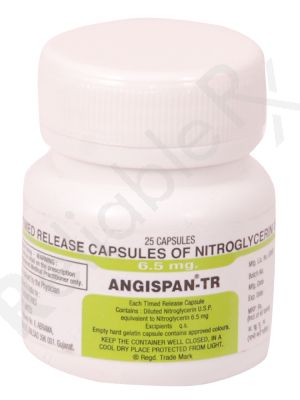 Angispan TR 6.5mgUS$ 0.39 - US$ 0.50
Angispan TR 6.5mgUS$ 0.39 - US$ 0.50$0.39 - $0.50
Generic For : NitroglycerineActive Ingredient : Nitroglycerine30 Capsule/sUS$ 15.00 -
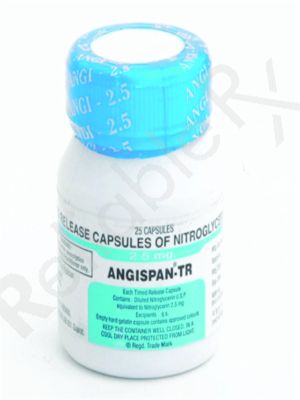 Angispan TR 2.5mgUS$ 0.29 - US$ 0.40
Angispan TR 2.5mgUS$ 0.29 - US$ 0.40$0.29 - $0.40
Generic For : NitroglycerineActive Ingredient : Nitroglycerine30 Capsule/sUS$ 12.00 -
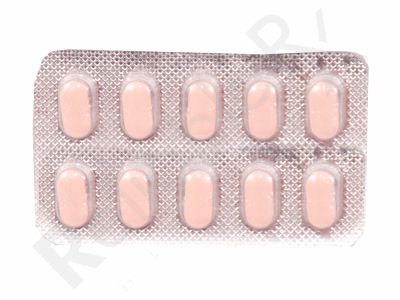 Ivabrad 7.5mgUS$ 0.89 - US$ 0.92
Ivabrad 7.5mgUS$ 0.89 - US$ 0.92$0.89 - $1.17
Generic For : IvabradActive Ingredient : Ivabradine30 Tablet/sUS$ 35.00 US$ 27.50 -
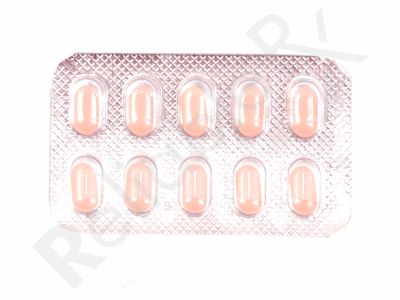 Ivabrad 5mgUS$ 0.67 - US$ 0.87
Ivabrad 5mgUS$ 0.67 - US$ 0.87$0.67 - $0.87
$0.67 - $0.87
Generic For : IvabradActive Ingredient : Ivabradine30 Tablet/sUS$ 26.00 US$ 30.00 -
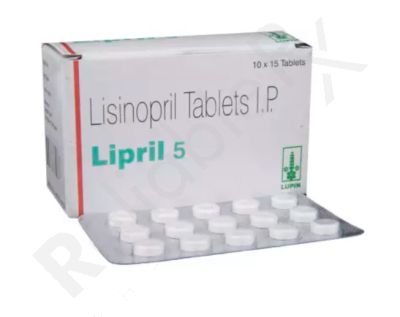 Lipril 5mgUS$ 0.28 - US$ 0.35
Lipril 5mgUS$ 0.28 - US$ 0.35$0.28 - $0.35
Generic For : PrinivilActive Ingredient : Lisinopril30 Tablet/sUS$ 10.50 -
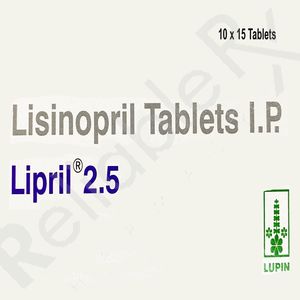 Lipril 2.5mgUS$ 0.18 - US$ 0.23
Lipril 2.5mgUS$ 0.18 - US$ 0.23$0.18 - $0.23
Generic For : PrinivilActive Ingredient : Lisinopril30 Tablet/sUS$ 7.00 -
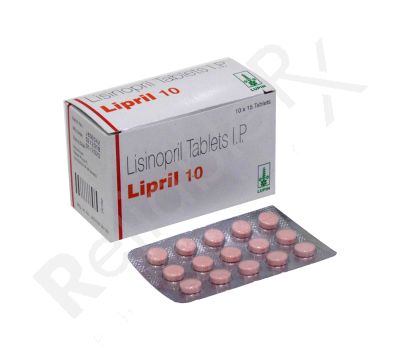 Lipril 10mgUS$ 0.56 - US$ 0.73
Lipril 10mgUS$ 0.56 - US$ 0.73$0.56 - $0.73
Generic For : PrinivilActive Ingredient : Lisinopril30 Tablet/sUS$ 22.00 -
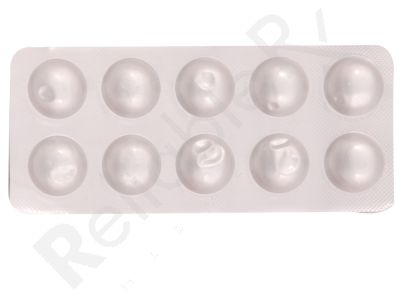 Olmesar A 5 20mgUS$ 0.50 - US$ 0.73
Olmesar A 5 20mgUS$ 0.50 - US$ 0.73$0.50 - $0.73
Generic For : AzorActive Ingredient : Amlodipine Besilate + Olmesartan30 Tablet/sUS$ 22.00 -
 Amlopres AT - 5+50 mgUS$ 0.29 - US$ 0.37
Amlopres AT - 5+50 mgUS$ 0.29 - US$ 0.37$0.29 - $0.37
Generic For : Norvasc TenorminActive Ingredient : Amlodipine Besilate + Atenolol30 Tablet/sUS$ 11.00 -
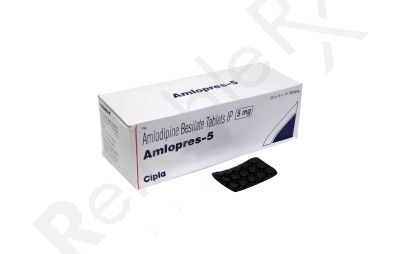 Amlopres - 5mgUS$ 0.13
Amlopres - 5mgUS$ 0.13$0.13
Generic For : NorvascActive Ingredient : Amlodipine Besilate30 Tablet/sUS$ 3.96 -
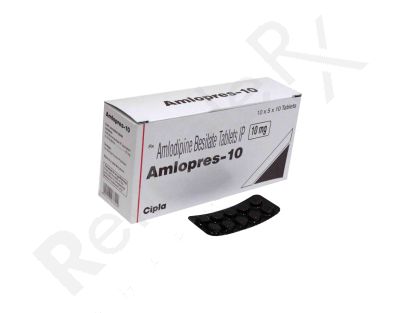 Amlopres 10 mgUS$ 0.23 - US$ 0.33
Amlopres 10 mgUS$ 0.23 - US$ 0.33$0.23 - $0.33
Generic For : NorvascActive Ingredient : Amlodipine Besilate30 Tablet/sUS$ 10.00 -

-
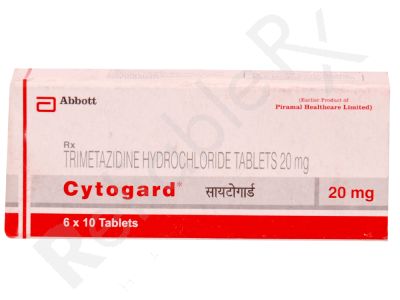
-
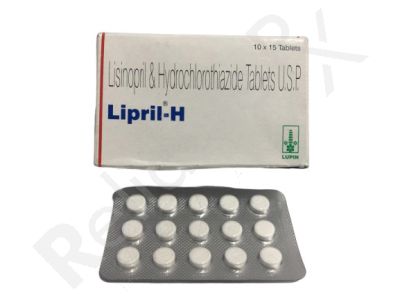 Lipril H 5 12.5 mgGeneric For : Prinvil HActive Ingredient : Lisinopril + HydrochlorothiazideSold Out
Lipril H 5 12.5 mgGeneric For : Prinvil HActive Ingredient : Lisinopril + HydrochlorothiazideSold Out
Angina pectoris
According to the American Heart Association, more than 6 million people in the United States experience angina, affecting women more than men. Angina pectoris in Latin means squeezing of the chest that occurs due to less oxygen supply to the heart. This kind of condition arises when one or more arteries (supplies blood to the heart) are blocked or narrowed.
Angina can be typically explained as heaviness, tightness, or pain in the chest. It happens because of the lack of oxygen supply to the heart in coronary atherosclerotic heart disease. There are mainly three types of Angina pectoris:
• Stable (or chronic) angina occurs when there is an increased workload over the heart than usual such as during exercise. It follows a regular pattern and happens over months or even years. By proper resting and medication, symptoms can be relieved
• Unstable angina does not follow a regular pattern. It is less common but more serious as it is a sign of a future heart attack that can take place in hours or weeks
• Variant (Prinzmetal's) angina is due to abnormal relaxation of the blood vessels and reduces the blood flow to the heart. It’s rare and can occur at rest without any underlying heart disease.
Causes of Angina:
Angina is most frequently the result of underlying coronary artery disease. The coronary arteries supply the heart with oxygen-rich blood. When cholesterol aggregates on the artery wall and hard plaques form, the artery narrows. It becomes difficult for oxygenated blood to reach the heart muscle because of the constricted and narrow arteries. Factors that increase the risk conditions are:
• hypertension
• tobacco smoking
• diabetic
• sedentary lifestyle
• genetic tendency age factor
• If in menopausal women, cholesterol levels are very high then this condition predisposes them to the risk of atherosclerotic and coronary diseases.
Signs and symptoms of angina:
Angina symptoms include
• Chest pain and discomfort
• Pain in your arms, neck, jaw and left shoulder
• Nausea and vomiting
• Shortness of breath, sweating, and dizziness.
Adverse effects of angina
The common complications that are seen in a patient with angina include the inability to walk and do normal things comfortably.However, the most dangerous complication associated with angina is the stroke.
Preventive measures:
Preventing Angina attacks is the way to prevent various serious health issues. Hence, you can do the following things to prevent angina:
1. Have a nutritious diet
2. To control BP, control your salt intake
3. Blood pressure can be controlled by reducing the consumption of alcohol
4. Stop smoking to keep BP under control
5. If you are overweight, then reduce the extra kilos
6. To avoid plaque buildup in the arteries, do some light exercises
Common anti-angina medications:
Some common anti-aging medicines are as follows:
• Amlopres+ Benace
• Cipril
• Lipril
• Amlodipine Besylate
• Antispam etc.
You can buy anti-angina drugs online at very cheap rates from various online pharmacies.
Myths and facts:
Myth: angina has no connection with mental disorder
Fact: no, according to some recent studies good healthy mental health is necessary to keep your cardiovascular system and the major organ heart healthy. Stress and overpouring emotions are not good for the heart.
Myth: Angina attacks only middle-aged person
Fact: No, the oblivious fact is that the roots of angina pain are the childhood mistakes made by people by following an unhealthy lifestyle and welcoming severe heart issues.
Diagnosis of angina pectoris:
For diagnosis, the physician mainly starts with the family history of heart disease followed by common blood tests such as:
• Cholesterol levels
• Blood sugar levels
Verification of the presence of the angina problem is done after successful tests such as:
• Electrocardiogram to have a complete look on the heart functioning
• Echocardiogram gives the image of heart from which doctor can analyze the blood flow
• Coronary angiography uses X-ray imaging to see inside out the scenario of heart blood vessels.
• Cardiac MRI: to get the detailed images of the heart structure and blood vessels
Treatment for angina pectoris:
The main goal of the treatment is to prevent angina ease pain quickly when it occurs and reduce the risk of cardiovascular diseases, especially heart attack.
Lifestyle changes
Control of daily activities helps you in keeping your heart healthy. Inculcating a few things in your daily schedule can make you disease-free:
• Avoid stress as this is one of the key causes of increasing heart load.
• High cholesterol level influences plaque formation in arteries and can block them. So there is a need to keep your cholesterol level under control by avoiding fatty food, oils, and butter
• If you have angina, blood pressure should be monitored after every six months;
• If overweight then start doing yoga, jogging, and deep breathing exercise to shed off your excess weight
• Don’t smoke and avoid to be a passive smoker
• Eat healthy fruits and vegetables and increase the fiber intake
These changes are helpful in mild angina but in a severe disease you need to switch to antianginal therapy.
Anti - anginal drugs:
These drugs work by increasing the supply of oxygen to the heart, such drugs are:
1. Nitrates
This class of drugs has been in use for the past 140 years. Drugs such as Nitroglycerine and isosorbide Mononitrate facilitate the smooth flow of blood in the vessels.
Beta blockers
They act by inhibiting the effect of adrenaline and reducing the blood pressure which in turn relaxes blood vessels and opens up for the smooth blood flow to the heart. Drugs like atenolol and propranolol aid blood vessel relaxation.
2. Calcium channel blockers
These channels prevent angina by blocking L-type voltage-dependent channels that are present in the vascular smooth muscles of the heart. It increases the blood flow to the heart, thus preventing angina. Amlodipine, Verapamil, and Diltiazem belong to this class. It doesn’t allow platelets to get aggregated and form plaque-like structures in arteries.
3. ACE inhibitors
These agents help in preventing fluid accumulation in arteries by inhibiting the activity of angiotensin-converting enzymes. This enzyme constricts the blood vessels and causes fluid retention as well. Drugs like Ramipril and Lisinopril relax the constricted blood vessels, and there is no building up of fluid.
4. Antithrombotic drugs
These drugs prevent blood clots and don’t allow the platelets to get stuck with each other such as Clopidogrel, and Aspirin. It inhibits plaque formation and aids in smooth blood flow.
5. Surgical procedures
If drug therapy fails or in emergency conditions, these measures are adopted. Various procedures are Angioplasty and Coronary artery bypass surgery explained below:
6. Angioplasty
In this, a catheter with a balloon is inserted into blocked arteries. When it reaches there, it gets inflated to compress the fatty tissue and forms a bulge which ultimately increases the blood flow. Aspirin and amlodipine are also given to avoid coronary spasms.
You can buy these anti-angina medications at very cheap rates from various leading online pharmacies.
7. Coronary artery bypass surgery
It is done in a patient with multiple arterial blockages. In this, an artery or vein from somewhere else in your body is used to bypass a blocked or narrowed heart artery. It’s a treatment option for stable and unstable angina.
Steps to improve the health:
You can do following things to keep yourself healthy
• Quit smoking
• Have a diet rich of fruits and vegetables
• Maintain the healthy weight by doing physical exercises
Important thing to know:
The heart is a very important organ of our body, and you can only keep your heart healthy by leading a healthy lifestyle, adopting a healthy diet, and keeping yourself fit.
What is the best tablet for angina pectoris?
Nitro-glycerine tablets treat sudden angina episodes in coronary artery disease patients. These are meant to be taken just before activities that contribute to anginal episodes to prevent angina from occurring.
What is the first-line treatment for angina?
Beta-blocker medications are the first-line medical treatment to relieve the symptoms of angina. Calcium channel blockers or long-acting nitrates are suitable for those who do not tolerate or have contraindications to beta blockers.
Do medicines for angina pectoris increase heart rate?
An increased heart rate is the common side effect of nitrate medications for angina pectoris.
How do antianginals medicines reduce the work of the heart?
Antianginals work by increasing the heart’s oxygen supply and decreasing the heart’s oxygen demand, or both.
What is the most common medication to manage angina pectoris?
Nitrates are often used to treat angina. They are used to relax and widen the blood vessels so more blood flows to the heart. The most common form of nitrate used to treat angina is nitro-glycerine.
How long do angina medicines take to work?
Short-acting nitrate medications are absorbed through your mouth into your bloodstream to relieve symptoms of angina within a few minutes.
What antianginal medication to use for angina pectoris?
The main medicines for angina pectoris are beta blockers, nitrates, and calcium channel blockers.
What are the most prescribed anginal medicines?
Nitrates or beta blocker drugs are usually the most preferred treatment for angina, and calcium channel blockers may be added if required.
Do I need a prescription for antianginals?
Taking antianginals without a valid prescription is never a good idea. The medicine may not suit you and could cause unwanted side effects or serious health risks.





20% OFF
On New Registration
Terms and Conditions Apply*
Flat 20% OFF
on your first purchase
20% off only on the product value
Maximum discount value $20
Only one coupon can be used at a time
Coupon code will be mailed on
your registered email address.
Login
Sign up
Flat 20% OFF
on your first purchase
20% off only on the product value
Maximum discount value $20
Only one coupon can be used at a time
Coupon code will be mailed on
your registered email address.
Login
Sign Up
Flat 20% OFF
on your first purchase
20% off only on the product value
Maximum discount value $20
Only one coupon can be used at a time
Coupon code will be mailed on
your registered email address.
Forgot Password ?